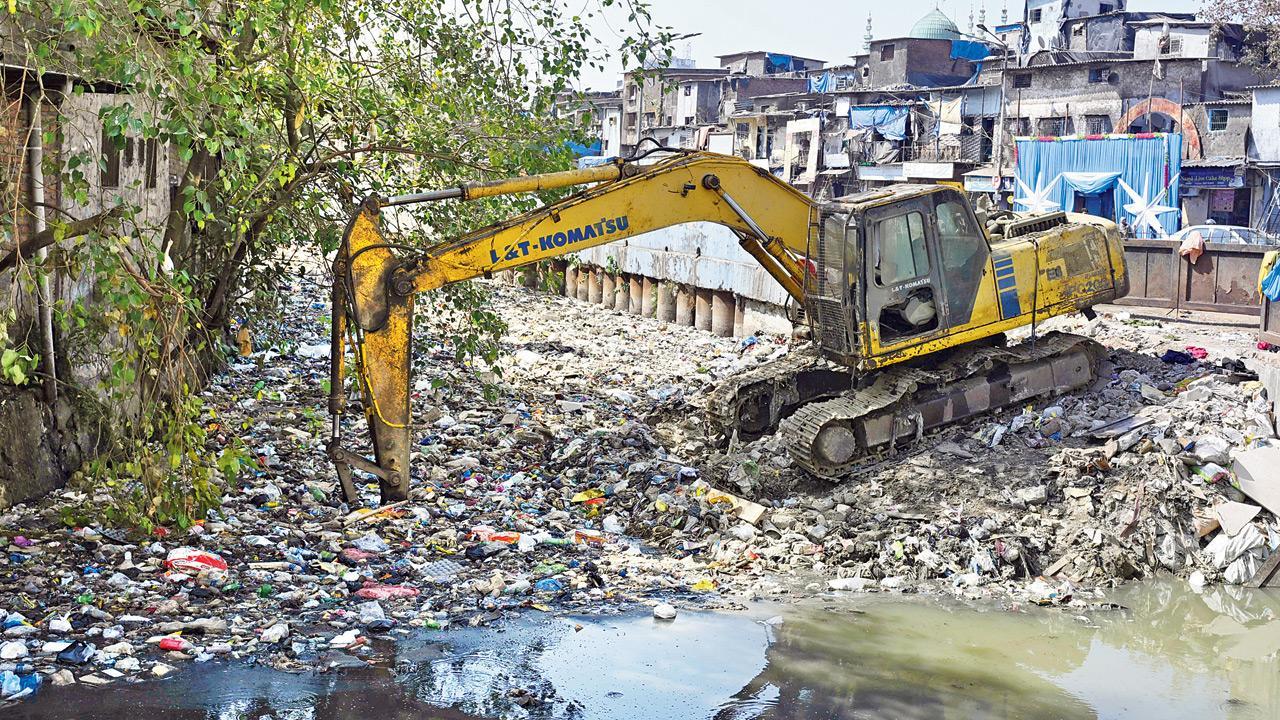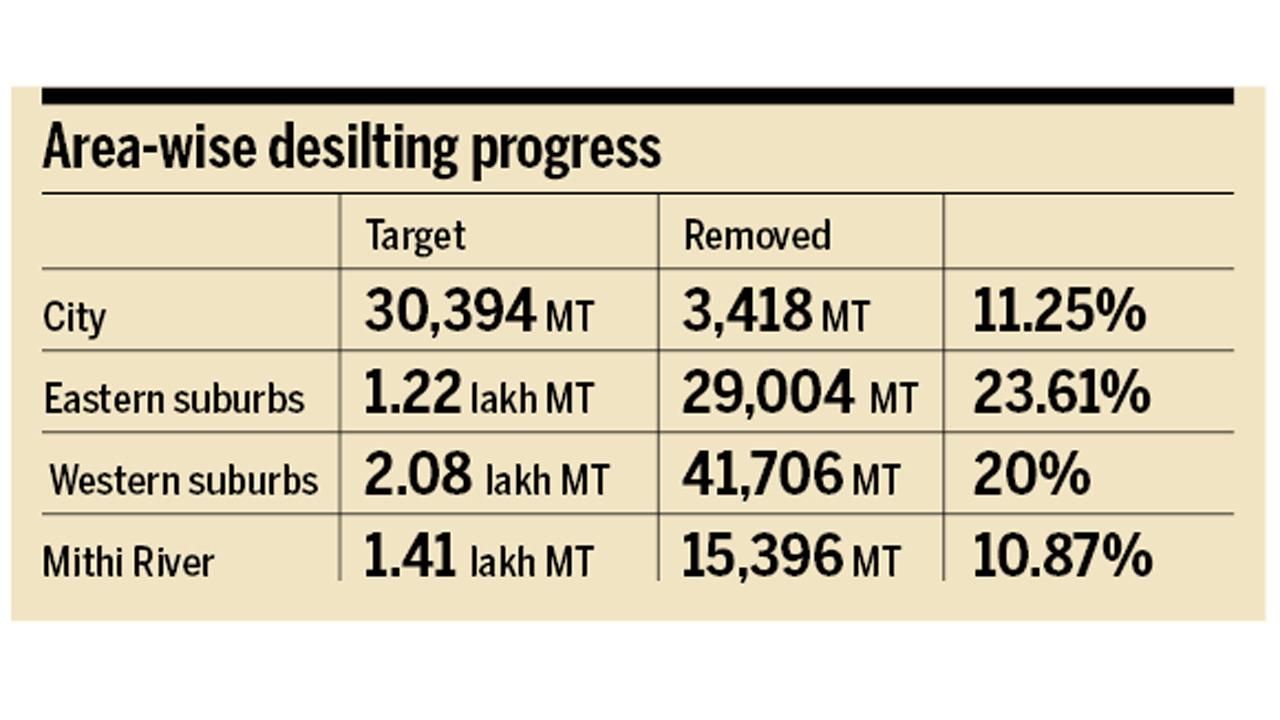BMC sets up war room to track desilting ops, crack down on contractor lapses; as per civic data, around 12 per cent of the total desilting work has been completed so far

The BMC has set a target of removing 9.34 lakh metric tonnes of silt from the city’s nullahs and the Mithi River. Pic/Ashish Raje
The Brihanmumbai Municipal Corporation (BMC) has decided to set up a dedicated war room to monitor the ongoing nullah desilting operations, which began on April 1. The move aims to ensure transparency and efficiency ahead of the monsoon season.
As per civic data, around 12 per cent of the total desilting work has been completed so far. The BMC has set a target of removing 9.34 lakh metric tonnes of silt from the city’s nullahs and the Mithi River. As of now, 1.11 lakh metric tonnes of silt have been cleared. A civic official from the stormwater drain department said the war room will be staffed by three officers and 11 support personnel, operating in two shifts—from 8 am to 3 pm and from 3 pm to 11 pm.
“The war room will monitor vehicle movements transporting nullah silt. It will also compare before-and-after videos sent by contractors to verify the work done. This setup will help ensure silt is being dumped at designated sites and keep a close watch on contractors,” the official explained. “A daily plan for the quantity of silt to be removed has already been prepared, making it easier to track progress,” he added.
The BMC is spending '550 crore over two years on the desilting of nullahs and the Mithi River. According to BMC’s guidelines, 75 per cent of the total silt should be removed before the onset of monsoon, and another 15 per cent during the monsoon. Mumbai has 215 km of major nullahs, 156 km of minor nullahs, and the Mithi River, which is 22.25 km long.
Mumbai’s nullah desilting scam, exposed in 2016, revealed irregularities dating back to 2005 and is estimated at '1100 crore. The case is currently being investigated by the Economic Offences Wing. Prior to the scam, the BMC used to appoint contractors for two-year terms. Post-2016, contracts have been awarded annually to improve accountability.

 Subscribe today by clicking the link and stay updated with the latest news!" Click here!
Subscribe today by clicking the link and stay updated with the latest news!" Click here!








